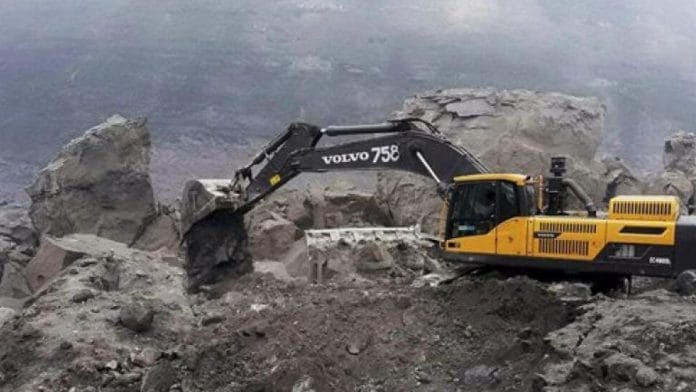New Delhi: Highlighting concerns over the capacity of State Environment Impact Assessment Authorities (SEIAA), which have been empowered to grant environmental clearances for more projects now, the National Green Tribunal (NGT) has asked the Centre to set up a three-member committee to formulate safeguards and guidelines to be followed by these state authorities.
“In the light of above observations, the Ministry of Environment, Forest and Climate Change (MoEF&CC) may constitute a three-member committee headed by its additional secretary with two other members being CPCB and Director, National Environmental Engineering Research Institute (NEERI). The committee may meet within one month and formulate guidelines/safeguards to be followed by the SEIAAs,” the bench comprising chairperson Justice A. K. Goel, judicial member Justice Sudhir Agarwal and expert member Prof. A. Senthil Vel said in an order passed on 7 December.
The tribunal was hearing an application filed by Social Action for Forest & Environment (SAFE), a non-profit organisation (NGO), challenging clauses of two notifications — one issued on 20 April and another issued on 9 May.
Through the notifications amending the Environment Impact Assessment Notification 2006, the government has “decentralised” the environmental clearance process. It has made changes to the projects and activities included in ‘category B’, which require environmental clearance from the state authorities.
For instance, it has now amended category B projects, to include all minor mineral mining leases, which means that all these projects will now be assessed by the state authorities, irrespective of the size of the mining lease. Also, with regard to major mineral (coal and non-coal) leases, the threshold of mining lease area for appraisal as Category B projects has been substantially increased. This means, more such projects will now be eligible to be assessed by the state authorities.
While the April notification gave the state authorities — instead of the Expert Appraisal Committee of the Environment Ministry — the power to grant environmental clearances for certain projects, the May notification shortened the duration of convening rescheduled public hearing and empowered the sub-divisional magistrate to conduct the public hearing.
The NGO alleged that the notifications were ultra-vires the Environmental (Protection) Act 1986 and the rules framed under it. Decentralising the power of appraisal for large projects and assigning such a power to the state-level authorities will be against the interests of the environment, because these authorities do not have the capacity and resources to do justice to such clearances, it claimed.
However, the tribunal felt that instead of annulling the notifications, it could ask the Centre to focus on addressing the concerns raised by the application on capacity building for state authorities, and therefore, appointed a committee instead. After its first meeting, the committee has to review the progress at least once in three months.
Also Read: In Haryana tragedy, deadly mix of ‘illegal mining’, disputed leases & a village of dependents
State authorities found inadequate
Though grant of environmental clearances has always been a bone of contention between the authorities and environmental activists, the NGT made it clear that such clearances cannot be an empty formality.
During a hearing in July in the same application, the tribunal emphasised on the objective of appraisal of the impact of a project on the environment. “The environmental regulation mechanism for conducting such appraisal must be effective. Authority/agency conducting such appraisal must have requisite capacity. In its absence, such large-scale decentralisation may defeat the object of sustainable development and appraisal may be farce,” it elaborated.
In two other unrelated cases, the NGT noted, it found “inadequacy in performance” of authorities in Maharashtra and Uttar Pradesh, after performance audits were conducted on the two authorities. It then opined that “even though decentralisation of EC process may not by itself be objectionable, adequacy of capacity for proper appraisal for grant of EC…needs to be ensured”.
In response, the ministry filed a response on 13 October, claiming that it is periodically reviewing the functioning of state authorities, and told the tribunal that it has convened capacity building programs for state officials through expert agencies like the Administrative Staff College of India. It submitted that the state authorities have “gained substantial experience over the past 15 years in the EC appraisal process”.
As per the 7 December order, the applicant, however, claimed that the MoEF&CC’s stand is “against ground reality”.
The tribunal then noted the composition of State Environment Impact Assessment Authorities (SEIAA) and State Expert Appraisal Committees (SEAC) of several states like Chhattisgarh, Kerala, Gujarat, Telangana, Tamil Nadu, Punjab, Maharashtra, MP, Jharkhand, Karnataka and UP. It said that while the SEIAAs have three members, SEACs have 8 to 15 members. In a few states, two or three SEACs have been set up.
“MoEF&CC thus, needs to prescribe qualifications and experience as well as require scientific and technical staff to back up the functioning of such constituted authorities and committees for effective enforcement of law,” the tribunal observed.
(Edited by Tony Rai)
Also Read: Exemption for ‘strategic’ highways, mining extensions: How govt’s reshaping environmental clearance






